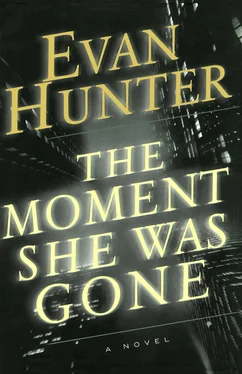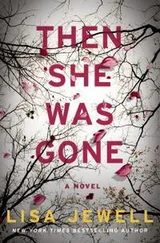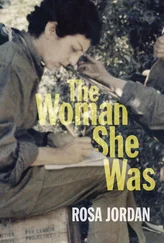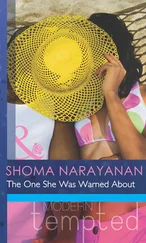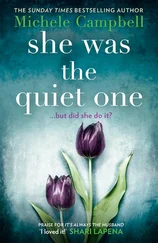Before the accident, she’d been a very good student. In fact, as I recall those days now, they form my happiest memories. Annie and I riding to school together on the bus, telling jokes and cracking wise with the other kids. Annie and I in class together, our hands popping up simultaneously whenever a teacher asked a question. My sister was the prettiest girl in the whole damn school, and I was her twin brother, and we were both smarter than anyone else around. We were The Gulliver Gang. My sister and I. We were twins.
But after her accident...
We thought it was the accident, you see.
We never once thought something might have happened to her in Sweden. Never once imagined anything had happened to her mind.
Even when she began losing interest in her classes, we blamed it on the accident. Now it was just my hand that popped up when a question was asked, my sister sitting unresponsive beside me. Or if, for example, a discussion was going on in class, where earlier Annie would have been a lively participant, she now sat silent and withdrawn. If a teacher asked, “Annie? Anything to contribute?” my sister would snap a surly “No!” or simply refuse to answer at all. Her concentration seemed to be fading. Sometimes, she didn’t seem to be there at all. I told her she should stop thinking about the accident all the time, focus her energy instead on the future. This was our senior year at Ambrose. We both had college to look forward to.
I wasn’t surprised when she started losing friends. At first, she just kept bad-mouthing the co-captains she insisted had deliberately broken her leg, but then she started accusing girls on the Ambrose team as well, her own team, suggesting that they’d also been part of the conspiracy somehow. Once, on my way to an English class, some girls from the team were whispering something as I approached, and all at once they stopped and turned away, and I figured they were talking about Annie, but I didn’t know how to defend her because I myself thought her accusations were completely wrong-headed. Another time, I saw some girls openly mocking her, pretending to limp down the hall and yelling, “They broke my leg, they broke my leg!” and I went over and said, “Cut it out, it wasn’t you who got hurt!”
Then my mother got a call after school one day, from the coach of the soccer team, who told her Annie was trying to work up a petition to get the two girls who’d broken her leg expelled from their school, and suggesting that Annie might want to schedule a talk with the psychiatrist at Ambrose. My mother took a fit. On the phone, she sounded the way she had that Thanksgiving morning when she was yelling at Grandma. “Are you suggesting there’s something wrong with my daughter?” she said. “You try having your leg broken, see what effect it has on you! Her father abandoned her when she was five, you might take that into consideration as well. My daughter’s an A-student, how dare you tell me she’s crazy? Oh, no? Then what did you just say?” My mother listened and then said, “Yes, I am listening, how about you listening to me for a change? My daughter’s not going to see any school psychiatrist! That’s the end of that!” she shouted, and hung up.
For the next several days, my mother kept telling me she was going to have both of us transferred out of that school, did they think they were the only private school in New York, how dared they say such things about her daughter? I finally convinced her that graduation was just around the corner. Annie had been accepted at Vassar, she’d soon be going off to college. She’d make new friends. The accident would become a forgotten incident in an otherwise memorable school career.
On a hot, steamy day in June of 1984, while the school band played Pomp and Circumstance, Annie and I were graduated from Ambrose Academy together with some fifty other seniors, all of us in black caps and gowns. My sister was still wearing the soft cast under her long black gown. None of her graduating team mates came over to congratulate her.
On September sixteenth that year, on a clear bright Sunday morning, we all drove out to Ridley Hills, New Jersey, to witness my brother Aaron’s marriage to the “Lack of Manners Clan,” as my sister had dubbed Augusta’s august tribe.
A week later, Annie flew off to New Delhi.
My mother swore she had not paid for the coach ticket on Air-India.
Neither she nor I could imagine where Annie had got the money for it.
That first trip to India and Southeast Asia ended some eight months later Annie came home in May of 1985 wearing baggy pants and sandals, and silver circlets through her brow, her nostril, and her tongue. Her hair was hennaed and crawling with lice. (Her pubic hair, too, my mother later informed me.) It was after this first journey to India that Annie told us she was a Tantric adept, having been initiated into the religion in Sri Lanka. She brought home a collection of the jewelry she’d learned to make from a silversmith in Bali, an odd collection of earrings, bracelets, pins, and rings fashioned mostly of silver and copper, with one or two pieces in gold. Some of the work depicted Shiva and Shakti, the god and goddess who were Tantric adepts. But most of the jewelry...
“Oh dear,” my mother said when Annie held up for exhibit a massive gold ring shaped in the form of a penis wrapped around her forefinger, its bulging head set with a tiny seed pearl representing delayed orgasm. We were beginning to understand that “Tantric adept” meant someone skilled in the art of prolonging sexual awareness through ritualized intercourse. We were beginning to catch on to the fact that Annie believed sexual orgasm was a cosmic and divine experience, something my mother didn’t particularly relish hearing because she didn’t want to believe her young daughter — Annie would be nineteen in September — was running all over the universe prolonging the pleasures of intercourse without reaching orgasm as described in the fourth-century Hindu sex manual called the Kama-sutra.
But spread all over my mother’s rug was an assortment of wrought, or perhaps overwrought, penises, vaginas, clitorises, testicles, nipples, and various abstract representations of “orgasms without ejaculation,” as Annie described them, silver and gold and copper and bronze splashing drily this way and that in perpetually delayed frenzy. The jewelry was explicitly sexual. In fact, it was embarrassingly so.
“An early Tantric deity was a goddess idolized in the form of the yoni, ” Annie said, “which is the vulva on that pin, Mom.”
At that moment, my mother was holding in her hand a copper pin formed in the shape of an open vagina with the shaft and head of a penis lying between its ripened lips.
“The male god was represented by the lingam, which was the Aryan word for penis, Mom, you can see that on the pin, too.”
“Yes, I see,” my mother said, and placed the pin back on the rug as if it had grown suddenly hot in her hand.
“In Tantra,” Annie went on to explain, “the sexual partners learn to heighten the act through the use of breath control, proper posture, meditation, and the pressure of fingers. You’ll see that one of the rings — which by the way can actually be used during sexual intercourse — is shaped like a tiny finger. I used a real ruby for the fingernail.”
“Would anyone care for some coffee?” my mother asked.
We were still living on Columbus and Seventy-second at the time. Mr. Alvarez, who was still super of the building, used to keep pigeons on the roof, and Annie and I went up there one evening shortly after her return, to watch the sunset. There were times, when Annie and I were growing up, that we seemed to live in a world of our own, speaking codes we ourselves invented, the ciphers known only to ourselves. But even when we spoke in plain. English, it was a rapid form of communication, Annie completing a sentence I had begun, I finishing one of hers. We were a reclusive, self-reliant pair. We needed no one else in our closed and intimate circle. We were twins. That evening, it seemed we were twins again. Annie was home again.
Читать дальше
